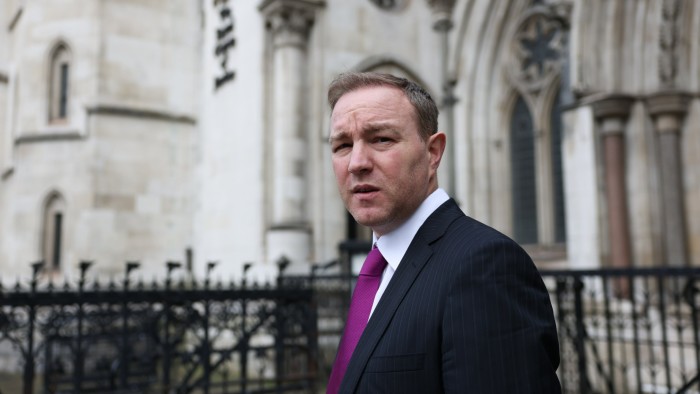Unlock the Editor’s Digest for free
Roula Khalaf, Editor of the FT, selects her favourite stories in this weekly newsletter.
Tom Hayes has emerged victorious in his decade-long battle to clear his name for rigging Libor benchmark rates after the UK’s highest court quashed his conviction.
The watershed Supreme Court ruling on Wednesday calls into question the UK’s other rate-rigging prosecutions, which served as a lightning rod for public anger over the global financial crisis.
Hayes became the public face of the Libor scandal. The manipulation of the now-defunct London Interbank Offered Rate, used to set the interest rate on loans and derivatives throughout the financial system, sent shockwaves through markets and the fallout cost banks billions of pounds in fines and settlements.
The former UBS and Citigroup banker was the first trader in the world to be found guilty by a jury of rigging Libor, which was determined daily based on numbers submitted by several large banks. His conviction in 2015 was regarded as a rare example of a banker being held to account following the financial crisis.
Hayes was originally handed a 14-year prison sentence, one of the UK’s toughest ever sentences for white-collar fraud. He served five and a half years in prison after his sentence was reduced to 11 years on appeal.
But in a decision handed down on Wednesday, a panel of five Supreme Court judges overturned his conviction. Carlo Palombo, a former Barclays trader who received a four-year sentence for manipulating Euribor, another benchmark rate, also had his conviction quashed.
Hayes and Palombo were among nine people successfully prosecuted by the UK’s Serious Fraud Office for rigging benchmark rates.
The Supreme Court judges found that the jury in the original trial at Southwark Crown Court had been misdirected. Jurors had been told that a Libor rate was inherently not “genuine or honest” if it had been “influenced by trading advantage”.
But, in a summary of the Supreme Court judgment, Lord Leggatt said: “These were questions of fact which should have been left to the jury to decide.”
The Serious Fraud Office, which prosecuted Hayes, said in a statement that it would not seek a retrial in the case. “We have considered this judgment and the full circumstances carefully and determined it would not be in the public interest for us to seek a retrial,” it said.
In jubilant scenes among family and supporters outside the court, Hayes said: “It feels very surreal — a little bit like my conviction.”
He added: “My faith in the criminal justice system in the UK at times was largely destroyed and it’s been restored.”
The UK court’s decision comes days after former HSBC currencies trading chief Mark Johnson had his criminal conviction for wire fraud in the US thrown out.



